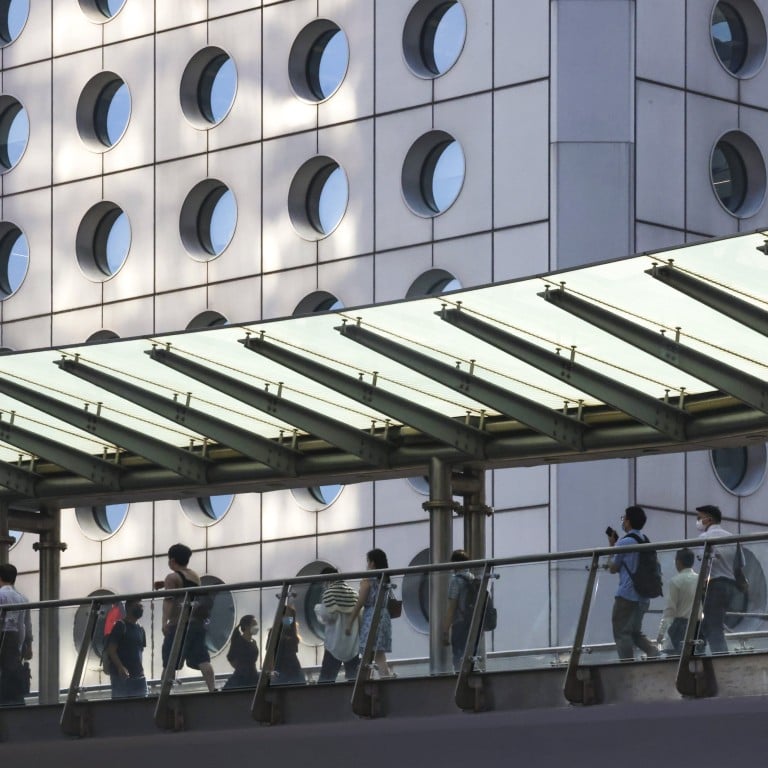
Hong Kong drops to 16th place in global talent ranking, lagging behind regional rival Singapore
- Hong Kong’s overall ranking lowest since 2019, when it was positioned at 15th place
- Singapore was placed first among Asia-Pacific economies, followed by Hong Kong and Australia
Hong Kong has dropped two places to rank 16th in attracting and fostering talent, trailing regional rival Singapore, with the high cost of living and a brain drain taking a toll on the city, according to a global study by a Swiss-based business school.
The International Institute for Management Development’s annual World Talent Ranking, released on Thursday, showed Singapore placed first among Asia-Pacific economies, followed by Hong Kong and Australia.
The city state ranked eighth overall, while Hong Kong came in at 16th place and Australia at 18th.

Hong Kong’s overall ranking is the lowest since 2019, when it claimed 15th spot.
Switzerland topped the list, followed by Luxembourg and Iceland, with Belgium and the Netherlands rounding out the top five.
The report evaluated the performance of 64 jurisdictions in three categories: investment and development, appeal and talent readiness.
Within these broad categories are 31 specific indicators, including cost of living, quality of life and judicial systems, as well as the standard of primary, secondary and university education.
In terms of investment and development of home-grown talent, Hong Kong fell two spots from last year to 15th place.
6 out of 7 Hong Kong universities in global survey drop in rankings
The city, which spent only 3.7 per cent of its gross domestic product (GDP) on education, was ranked 50th in terms of total public expenditure in the area.
When it came to tapping into the overseas talent pool, Hong Kong was listed as 32nd, the same as last year, but dropped from 18th in 2019. It also fell from third to sixth place for talent readiness.
Hong Kong’s cost of living index was positioned at 61 out of 64, but the city ranked fifth in terms of management pay, with an annual average salary and bonuses of HK$2.2 million (US$285, 857), according to the company HCM International.
The report found Hong Kong had a high level of talent with financial skills, as well as a high percentage of science graduates.
But it identified a 2.43 per cent contraction in the labour force – according to Organisation for Economic Cooperation and Development estimates – as a weakness for the city’s talent readiness.
Hong Kong loses pride of place for economic freedom to rival Singapore
Hong Kong rents are forecast to rise by 8 to 10 per cent in 2023 – the biggest jump in 11 years – in part due to an influx of mainland Chinese student and professionals arriving in the city under government talent schemes, according to property agency Midland Realty.
The average rent for private residential properties in July reached HK$35.26 per square foot, the highest since October 2021, according to an agency report last month.
Alexa Chow Yee-ping, managing director of recruitment agency ACTS Consulting, said the Top Talent Pass Scheme for those who earned no less than HK$2.5 million a year or were graduates of one of the world’s top 100 universities, had received a “tremendous response” from mainland professionals.
Chow noted that the new visa was not tied to a job offer, so it remained to be seen how many applicants would take up work in Hong Kong.
The city was short of workers in IT amid competition from neighbouring Shenzhen, as well as in the medical, construction, accounting, retail and hospitality sectors, Chow added.
For Hong Kong to compete with other economies and attract back foreign talent, it had to remain an international city and be the link to the mainland market.
“It is the special DNA which Hong Kong has, which Singapore does not have,” Chow said.
Strict pandemic rules in Hong Kong and Beijing’s imposition of the national security law in 2020 contributed to a wave of emigration and an exodus of expatriates.
Hong Kong’s population rose 2.1 per cent, or by 152,000, from the middle of 2022 to June this year, in part due to various talent initiatives.

